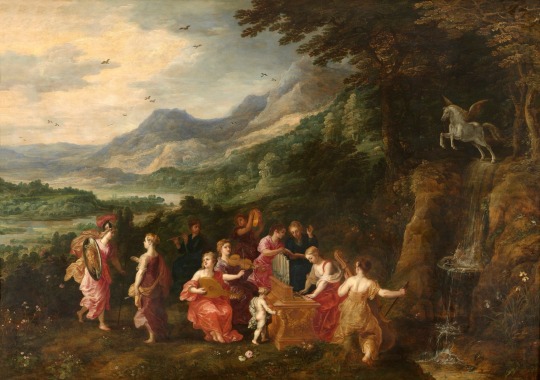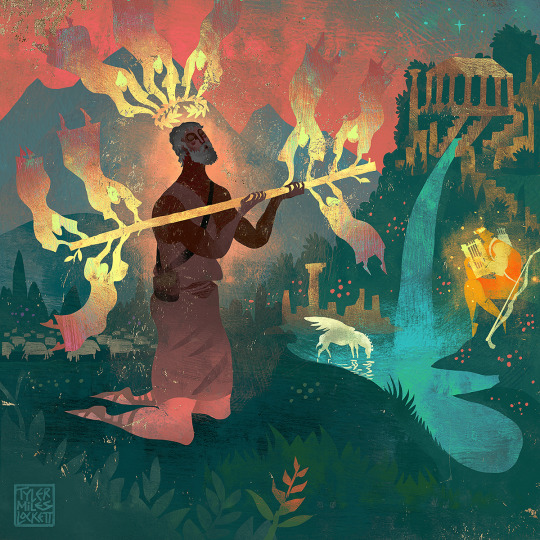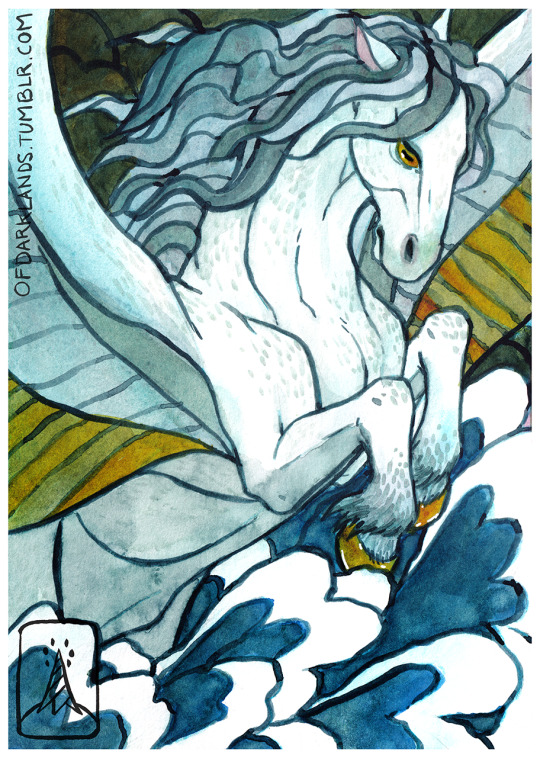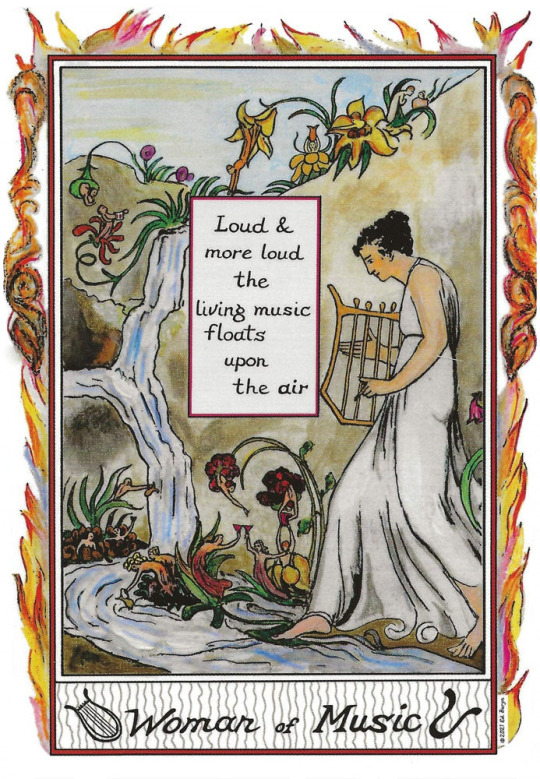#Hippocrene
Text

Minerva's Visit to the Muses by Joos de Momper
#minerva#muses#mount helicon#art#joos de momper#pegasus#fountain#medusa#shield#pallas#athena#ovid#landscape#metamorphoses#hippocrene#roman mythology#greek mythology#goddess#joos de momper the younger#mountain#mountains#groves#grove#ancient greece#ancient rome#ancient greek#europe#european#pallas athena
81 notes
·
View notes
Text
Goddess milk
Dressed as mortals might but could never
Dressed as and of the sea
Troy-bound triremes odyssey across bluegreen dress
Eastgoing westfromers foamgoing
Her skin the white horses decreasing to diminution
At the lapping enfolding shore, where beachcombers
Stow cuttlefish bones periwinkle shells in shawls and sodden burlaps
Occident’s orient, backward’s front
Facade of the willingly…
#alchemisland#art#creative writing#dublin#expression#goddess#hippocrene#imagination#inspiration#ireland#irish#mythology#neuralchemy#original poem#poem#poet#poetblr#poetry#poetryblr#solomon#spilled ink#words#writeblr#writer#writing
0 notes
Text
hate seeing the views on a fic suddenly start going up by dozens bc it's the day I estimated I would update I NEED 1 MORE DAY PLS AVERT YOUR EYES 🫣
#they don't know that I got sidetracked by drafting hazeleo vampire au 😔#also am working on hippocrene update
2 notes
·
View notes
Text
Mastering Polish CDs?
I rented this book by Albert Juszcsak from the library, but it doesn't have the CDs with it. I figure it's a long-shot, but does anyone know where I could find the audio online??
Dziękuję!
1 note
·
View note
Text

Unlike Homer, we do have some record of the poet Hesiod, as he brought details of his personal life into his work. His epic poems are invaluable reference sources for the formation of the cosmos and the genealogies of the Greek Gods.
The first major extant (still existing) work of Hesiod’s is the epic poem and invocation hymn “Theogony,” (origin of the gods, 700 B.C.E.) In the poem, while shepherding sheep upon Mount Helicon, Hesiod tells of encountering the Muses who gift Hesiod a laurel staff, a symbol of poetic authority, and breathing into him the divine breath of inspiration. In this poem Hesiod gives us the forming of the universe from Uranus (sky) and Gaia (earth) and the cyclops, giants, and Titans to follow. In this work with have the triple succession motif of sons overthrowing fathers with Cronus overthrowing Uranus, and then Zeus overthrowing Cronus in the Titanomachy (war between Olympians and titans.)
His second work, “Works and Days” is a didactic collection of pastoral poetry tales used to illustrate for his ne’er-do-well brother, Perses, how to lead a more virtuous life through hard work, humility and justice. Here we get the tales of Prometheus stealing fire from Zeus and Pandora opening the jar and releasing evil upon mankind. Hesiod also lists the fascinating fives ages of man; the Golden age, the Silver age, the Bronze age, the Heroic age, and the Iron age. The poem ends with ruminations on seasons and agricultural wisdom.
In my illustration we see the sacred fountain of Hippocrene in the background, which was said to have poured forth when Pegasus struck his hoof into the ground. The sacred stream was said to give the drinker poetic inspiration.
One tale of Hesiod’s death is that the oracle of Delphi told him he would die at Nemea, so he fled to Locris, where he, unable to escape fate, eventually died at the temple to Nemean Zeus, fulfilling the prophecy in typical ironic fashion.
Thanks for looking and reading, and for rehashing/reblogging my works you fine Tumblr folks! Happy 2023! xoxo
If you want to see more of my art, please click my linktree: https://linktr.ee/tylermileslockett
#pagan#hellenism#greek mythology#tagamemnon#mythology tag#percyjackson#classicscommunity#dark academia#greek#greekmyths#classical literature#percy jackon and the olympians#pjo#homer#iliad#classics#artmerch#mythologyart#art#artists on tumblr#artists on etsy#odyssey#literature#hesiod#apollo#pegasus#ancientworld
644 notes
·
View notes
Text
Daniel, Armand, and Keats???
Ok so the incredibly grainy footage of the new teaser has me spiraling! Devils minion on screen! But even more exciting, is Armand describing himself as “easeful death”, presumably to Daniel. Ok Rolin Jones, listen up. I don’t know a ton of literature by heart by I WAS a depressed and then chronically ill teen and early twenties person, who identified maybe a little too hard with romantic poet John Keats. Some of his poems are permanently tattooed on my brain. So I see what the writers are doing here. “easeful death” is from Ode to a Nightingale. The full line is: “Darkling I listen; and, for many a time/I have been half in love with easeful Death”. I mean. Come on.
I reread the poem after watching the trailer last night, and it’s actually SUCH a clever reference. It could practically be written by Daniel about Armand. We already know the writers room is familiar with and willing to reference other classic poets (Emily Dickinson absolutely is a vampire) so I think this is 100% intentional.
The narrator of the poem is tired of the difficulties of life and is longing for death; he speaks to the nightingale as a kind of immortal figure who is free from all cares. He is able to momentarily accompany the nightingale, at least mentally, as it flies and forget all troubles, but must come back to earth by the end of the poem. It’s pretty easy to read this as Daniel talking about Armand.
In fact, the first thing the speaker longs for is not death or the nightingale, but wine to take his mental pain away.
O, for a draught of vintage! that hath been
Cool'd a long age in the deep-delved earth,
Tasting of Flora and the country green,
Dance, and Provençal song, and sunburnt mirth!
O for a beaker full of the warm South,
Full of the true, the blushful Hippocrene,
With beaded bubbles winking at the brim,
And purple-stained mouth;
That I might drink, and leave the world unseen
And we know that Daniel was numbing himself with drugs when he first met Louis and Armand. In fact the voiceover in the trailer almost feels like a pitch to Daniel; Armand is saying “I’m better than the best drug you’ve ever had”, effectively.
The speaker is determined to forget what the lucky nightingale (or Armand) “hast never known”:
The weariness, the fever, and the fret
Here, where men sit and hear each other groan;
Where palsy shakes a few, sad, last gray hairs,
Where youth grows pale, and spectre-thin, and dies;
Where but to think is to be full of sorrow
The nightingale doesn’t know about the trials of living and aging, just like Armand. The speaker wants to forget about the inevitable “palsy shakes” that arrive with age. which could easily be a reference to what we now diagnose as Parkinson’s Disease.
At this point in the poem, the speaker tells the nightingale that he will join him in forgetting life not with the help of “Bacchus and his pards” (wine) but with “posey” (poetry). Which makes me think of Daniel using his writing to get closer to the vampires.
The fact that the speaker calls the nightingale “Darkling”! I mean what a perfect name for Armand. In fact I think this whole section is just perfectly about a vampire if you want it to be:
Darkling I listen; and, for many a time
I have been half in love with easeful Death,
Call'd him soft names in many a mused rhyme,
To take into the air my quiet breath;
Now more than ever seems it rich to die,
To cease upon the midnight with no pain,
While thou art pouring forth thy soul abroad
In such an ecstasy!
Still wouldst thou sing, and I have ears in vain—
To thy high requiem become a sod.
Thou wast not born for death, immortal Bird!
No hungry generations tread thee down;
The voice I hear this passing night was heard
In ancient days by emperor and clown
Armand was not born for death; he’s seen many an emperor and clown and in fact been both (leader of the coven, pretending to be Rashid). There’s also an emphasis on the nightingale’s song. I don’t know if Armand will be a musician at all in the show, but he and the coven are definitely performers.
In the last stanza, the speaker comes back to himself. He knows that he does not get to escape the burden of life for the ease of death, or at least not yet. It makes me wonder if Daniel will eventually turn down the gift at some point in the devils minion timeline. We know that he rejects Louis' mocking offer to give him the gift in the Dubai timeline.
Forlorn! the very word is like a bell
To toll me back from thee to my sole self!
Adieu! the fancy cannot cheat so well
As she is fam'd to do, deceiving elf.
Adieu! adieu! thy plaintive anthem fades
Past the near meadows, over the still stream,
Up the hill-side; and now 'tis buried deep
In the next valley-glades:
Was it a vision, or a waking dream?
Fled is that music:—Do I wake or sleep?
The last line and the confusion about whether the time spent with the nightingale is a dream or not makes me think of Daniel waking up from the dream of Polynesian Mary’s.
In summary, Rolin Jones what the fuckkkkk. I’m so so excited about this season and all the Armand/Daniel content we’re about to get.
Oh also, as a bonus, if you want to hear Ben Whishaw recite the entire poem, and you definitely do, here you go:
youtube
#interview with the vampire#iwtv#my meta#devils minion#and john keats I guess!#armandaniel#interview with the vampire amc
56 notes
·
View notes
Text
My Hymn to the Muses
Since I can apparently write poetry now, I've decided to begin work on a hymnal. It's going to be a long-term project. As is proper, I've begun with the Muses. (I also really could use their help right now.) I was sobbing while writing this, so, that's how I know I'm on the right track.
To the Muses
O Muses, from whom all stories flow
Like the waters of the Hippocrene,
that pours from Helicon’s towering heights
onto the sacred planes of Greece;
Daughters of Zeus and mothers of song,
whose voices sound like chiming bells,
heard in the ripples of the stream
and the calling of the wind,
singing stories older than
the many languages of men;
Your voices sing within my soul
And always have, since I was born.
Urania, who in my youth
led me to a sacred stream,
and turned my face up to the stars;
Calliope, who leads me through
the lengthy stories that I tell;
Terpsichore, who compels my limbs
to express what’s in my heart;
Euterpe and Erato, who
with their sweet voices, charm my soul;
Polyhymnia, who speaks to me now,
encouraging me to praise the gods;
Clio, she who calls my glance
back to the rich lore of the past;
Thalia and Melpomene,
the witty players on life’s stage,
who remind me to enjoy the show,
and teach me how to cope with endings.
Pegasus brought me to you,
Once, very long ago.
And in that time you’ve taught me well
How to sing and dance and write,
the many arts of lorekeeping.
Sisters, now I call to you--
fill me with the voice divine,
so that always, always the words will come.
#poetry#my poetry#hymns#hymn to the muses#the muses#the nine muses#mousai#hellenic polytheism#hellenic pagan#helpol#hellenic paganism#hellenic devotion#greek gods and goddesses#hellenism#hellenic worship#hellenic deities#hellenic polythiest#calliope#urania#polyhymnia#euterpe#erato#terpsichore#clio#thalia#melpomene
31 notes
·
View notes
Text
Ode to a Nightingale
Just posted a new one-shot based on a conversation w/ @queen-mabs-revenge on a post about Aziraphale's reading habits <3
Set in 1941, Crowley has fallen asleep on the couch in Aziraphale's bookshop after a very long evening of bombs, zombies, and wine. Aziraphale has recently acquired some new first editions of John Keats, and a few poems hit a little too close to home.
a wee excerpt:
Aziraphale stumbled backward, coming to his feet, and then abruptly collapsing into the armchair. He took a sip from his wine glass and picked his book back up. Where was he, where was he?
(Any line would do.)
O, for a draught of vintage! That hath been
Cool’d a long age in the deep-delved earth,
(He was skipping lines, he couldn’t quite concentrate––in his periphery, which he longed to ignore, he could see Crowley rising––)
Full of the true, the blushful Hippocrene,
With beaded bubbles winking at the brim,
Crowley pushed the book down into his lap with a single long finger, but Aziraphale didn’t look away from the page.
And purple-stained mouth;
That I might drink, and leave the world unseen,
“Angel,” Crowley said.
And with thee fade away into the forest dim:
Crowley took his chin in his fingers and lifted Aziraphale’s face to meet his gaze.
#good omens#ineffable husbands#aziracrow#crowley x aziraphale#aziraphale x crowley#good omens fanfiction#ineffable husbands fanfiction#good omens 1941#john keats#no nightingales#ode to a nightingale
37 notes
·
View notes
Text

27 - Pegasus
Pegasus is a winged horse in Greek mythology, usually depicted as a white stallion. There are several versions of the birth of the winged stallion and his brother Chrysaor. One is that they sprang from the blood issuing from Medusa's neck as Perseus was beheading her, similar to the manner in which Athena was born from the head of Zeus after he swallowed her pregnant mother. In another version, when Perseus beheaded Medusa, the brothers were born of the Earth, when the Gorgon's blood fell upon her. A variation of this story holds that they were formed from the mingling of Medusa's blood, pain, and sea foam, implying that Poseidon had involvement in their making.
According to early myths, everywhere the winged horse struck his hoof to the earth, an inspiring water spring burst forth. One of these springs was upon the Muses' Mount Helicon, the Hippocrene. Another spring associated with Pegasus was at Troezen. Hesiod relates how Pegasus was peacefully drinking from a spring when the hero Bellerophon captured him with the help of Athena and Poseidon. Pegasus allowed Bellerophon to ride him in order to defeat the monster Chimera, which led to many more exploits. Bellerophon later fell from Pegasus's back while trying to reach Mount Olympus, where both are said to have died at the hands of Zeus. Other tales have Zeus bring Pegasus to Olympus to carry his thunderbolts. Because of his years of faithful service to Zeus, Pegasus was later honoured with transformation into a constellation.
56 notes
·
View notes
Text




The original Hippocrene, on Mt Helicon, was said to be associated with the muses and poetry. Perhaps Rainbow will compose a poem about this day?
102 notes
·
View notes
Text
Smoking a cigarette outside the national library while having a complete breakdown because I'm so exhausted and overworked I'll have to skip lunch today and freaked the fuck out already cause I slept till 9.30 and only managed to get here at 11.30 and have lost a whole morning and now the greeks are asking me stupid shit like explain what an Abassid is, my fucking guy ita a dynasty, why the fuck do I have to explain what an 11th century islamic dynasty is in a story about a palace from sintra, and then they go on ask for inane shit like "explain the myth of the Hippocrene" or "explain ruskins theory" i already dont have time for a fart, i have to skip lunch cause i do not have the time for anything and i have to talk about BOTANY which so outside of my knowledge its making me lose hairs and there are 6 books on my table i have not touched cause ive been trying to solve this shit for an hour
15 notes
·
View notes
Text

Woman of Music. Art by Ed Buryn, from The William Blake Tarot of the Creative Imagination.
(Water of Fire — Matter of Passion)
This card is from a design to Gray's poem, "The Progress of Poesy," illustrating the lines:
Awake, Æolian lyre, awake,
And give to rapture all thy trembling strings.
From Helicon's harmonious springs
A thousand rills their mazy progress take:
The laughing flowers, that round them blow,
Drink life and fragrance as they flow.
Mt. Helicon's anciently famous springs of Aganippe and Hippocrene (hippo=horse + krene=spring, because unearthed by the winged horse Pegasus), are the home of the Greek muses and thus the birthplace of music and poetry. Their waters inspired whoever drank them, and the fragrant flowers surrounding them were reputed to deprive snakes of their venom. Helicon was named after the goddess Helice, a virgin form of Hecate (see II—Mystery) whose name means 'willow' in Greek, for willows were planted by streams and their wands used for divination. This Grecian muse is Helice, and like her namesake willow, she merges with the stream — right foot forward to indicate her spiritual qualities. The 'trembling strings' of her lyre (from Æolus, the wind-god) are the song of the wind in her branches. The humanized flowers along the rills of the stream all drink and toast the inspirational waters, a metaphor for Gray's "rich stream of music."
The muse or Woman of Music is here associated with fire (in the border), air (the Æolian wind), water (the springs), and with earth (the living flowers). She is the Enchantress who channels and integrates energy, thoughts, feelings, and spirit. Her "living music" is "loud" and clear. Compare this card image with the Queen of Cups in the traditional Tarot.
This is the part of yourself or another who listens to the inner chords for life's ecstatic moments. You seek pleasure and tranquility, are naturally graceful and gentle, and enjoy all the senses. This person excels at 'diffuse consciousness' — an instinct for taking everything in without focusing on anything in particular. She may be very psychic, and easily reflects other people's feelings and projections. In the face of harsh realities, she may escape into solitude, addictions, or anodynes. Loving life, she is likely to vigorously laugh with joy, or unashamedly wail with sorrow.
In the creative process, this is when you vibrate in tune with everything around you, sensitively aware of life energy in all its forms, from which you create something new through the filter of your own consciousness.
KEYWORDS: EMOTIONAL DEPTH • FLOWING PSYCHIC SKILLS • SOURCE OF INSPIRATION TO OTHERS • ENCHANTING PERSONAL MANNER • MULTIPLE AFFINITIES AND TALENTS •
#Ed Buryn#The William Blake Tarot of the Creative Imagination#Queen of Cups#Queen#Cups#Tarot#William Blake
26 notes
·
View notes
Text

Título completo: Pegaso y las musas
Artista: Posiblemente de Girolamo Romanino
Fechas de artistas: alrededor de 1484 - alrededor de 1560
fecha realización: alrededor de 1540
Medio y soporte: Óleo sobre madera
Dimensiones: 38 × 115,4 cm
Crédito de adquisición: Legado de Layard, 1916
Numero de inventario: NG3093
La pintura muestra el momento descrito en Las Metamorfosis de Ovidio cuando el mítico caballo alado Pegaso golpeó con su casco el monte Helicón, provocando que brotara un manantial. El manantial pasó a ser conocido como Hippocrene, o Manantial del Caballo. Aquí el artista muestra varios finos arroyos que fluyen hacia abajo para alimentar una masa de agua más grande en la llanura. Alrededor de Pegaso están las Musas, cantando y haciendo música, mientras que las hijas de Piero, que cantaban en competencia con ellas, forman un círculo al fondo. La pintura probablemente era la tapa de un instrumento de teclado.
Todas las nueve musas visten trajes lombardos de alrededor de 1540, que es similar al de los murales de Romanino en el Palazzo Salvadego, Brescia, de alrededor de 1543. Los tipos faciales también son típicos de Romanino, al igual que las líneas cortas y rizadas de sombreado debajo del brazo del hombre a la izquierda. Sin embargo, no es seguro que la pintura sea de Romanino.
Información e imagen de la web de la National Gallery de Londres.
2 notes
·
View notes
Text
— please stay, hippocrene
( a percabeth + frazel romantic getaway fic )



summary — ;
♡ — Percy, Frank, Annabeth, and Hazel, hoping to take a break from their adult responsibilities (and have some desperately needed alone time with their partners), go on vacation together. Their plans are thwarted harshly when a certain ring of goddesses summons them to a quest. With their holiday sorely interrupted, can they still make time for romance?
content — ;
♡ steamy. vanilla. intimate. romantic. silly. rom-com vibes. tooth-achingly sweet.
♡ features percabeth and frazel equally, + very minor jiper and solangelo
♡ takes place approx. 9 years after HoO, ignores all books afterwards
♡ characters are explicitly described as adults in their 20s
♡ don't like, don't read/interact. see ao3 link for more info and warnings

excerpt below the cut, please like if you read. reblogs are appreciated ♡
Preview

[ ... ]
The melodies of New Rome chirped in the distant background; lares scolding unruly legionnaires, Hannibal the elephant stomping about the grounds, eagles squawking in the dusky sky above—but the only sound that Hazel seemed to mind was that which thundered from his chest.
“Your heartbeat’s really going, Frank.” she observed, lifting her head an inch from his body. “Sheesh. Is it usually like this?”
And he answered without thinking, “It is around you.”
Their eyes met right then. Frank blushed up to his ears.
Looking directly into Hazel’s eyes often felt like opening up a treasure chest. One could hardly tell the difference between heaps of gold jewelry and the amber in her eyes, shimmering like gilded shards of cherished earth. As she stared up at him with those faultless, glittery irises, Frank thought to himself that he was still out of his league. This brave, stunning woman laying sweetly in his arms, whose dear love felt like a fairytale…
His eyes wandered to her lips. Gorgeous, shapely little things—the lips that framed her every picturesque smile. At this moment, he couldn’t stop staring at them. He knew what he wanted to do. He wasn’t brave enough. What a poor excuse for a child of Mars, who could plunder the battlefield valiantly but now failed to summon enough courage to kiss his own girlfriend—
“Y—you can kiss me, Frank. It’s okay…”
His heart stopped for a moment. Frank looked back up to her eyes and he felt stupid, graceless, embarrassed; he must have been staring at her mouth so obviously. Could he be any less romantic?
Hazel looked rather shy herself. Her thumb drew nervous circles on his chest, and she struggled to maintain eye contact. But she had uttered those heart-stopping words, and she seemed to have meant them. Her back had straightened so that her face was a little closer in level to his. Likely on purpose. Frank could barely control his breathing. They had already kissed not long ago, but with the daylight dimmed, with the fact that they would usually be preparing for bed in separate rooms by now, this felt… different…
Gods, he was so uncool.
— PSH, Ch. 01

♡ Read the full chapter on AO3, here.
#beach dividers by @cafekitsune#minors dni#percabeth#frazel#percy jackson#annabeth chase#hazel levesque#frank zhang#percabeth fanfic#percabeth fanfic rec#pjo fanfiction recommendation#frank zhang fanfic#percy jackson fanfic#percabeth smut#i hate tagging#frank zhang smut#frazel smut#percy jackson smut#percabeth fluff
32 notes
·
View notes
Text
Mis Hanes LHDT+ 2023 : Gair y Dydd #4 -Trawsryweddol
LGBT+ History Month 2023: Word of the day #4 -Transgender
Trawsryweddol
(adj. Transgender)

Like Lesbiaidd and Deurywiol, the knowledge of the emergence of Traws into the Welsh language is misty. It is known that trans terminology entered the Welsh langauge in the 20th Century, but it is not known when exactly.
As with all of my other words of the day so far, much of my data is dictionary based. You can see my blogs about LGBT+ Welsh terminology in dictionaries here.
Trans terminology does not appear in my data until 1981! Y Geiriadur Cymraeg Cyfoes is the earliest instance of trans terminology recorded with Trawsrywiol (transsexual). More than a decade passes until it appears again in 1993, in the Hippocrene Standard Dictionary Welsh-English English-Welsh as Trawsrywiol.
Geiriadur Yr Academi in 1995 expands on the terminology, including the terms Trawsrywiol (Transsexual), Trawsrywiolyn/-iolion (A transsexual/transsexuals), Trawsrywiolen (Transsexuals), Trawsrywioledd (Transsexuality).
In 2016 the introduction of -rhywedd (gender) instead of-ryw (sex) is printed in Geiriadur Cymraeg Gomer as Trawsryweddol (Transgender) alongside Trawsrywiol. Since then, the two terms are often printed together in dictionaries.
38 notes
·
View notes
Text
Regarding my own works
Delving where I would not typically
Bringing back the void lyrically
From my black, seething wellspring
Whence springs me, knowing me thence
Thing unclean, unfit receiving hippocrene
My unpublished books unfit even for charity shop shelves
Beside Stieg Larsson, Stephen King, Stephanie Meyer and George Martin
Present in every Concern and Vincent De Paul from Gorey to Grousehall.
#writeblr#alchemisland#poetry#poem#creative writing#poet#spilled poem#spilled poetry#spilled ink#poets on tumblr#original poem#poetryblr#words words words#words
3 notes
·
View notes